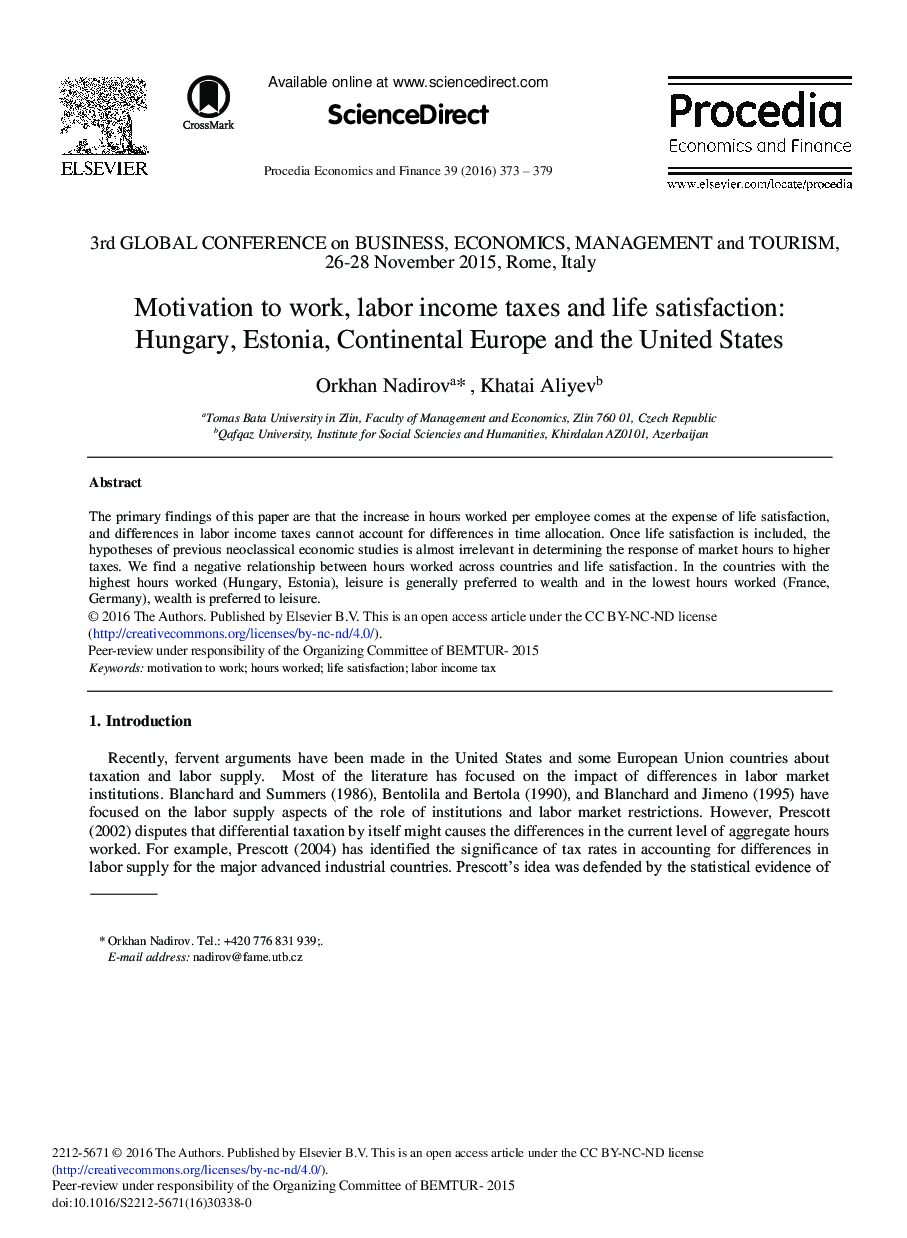| Article ID | Journal | Published Year | Pages | File Type |
|---|---|---|---|---|
| 980532 | Procedia Economics and Finance | 2016 | 7 Pages |
Abstract
The primary findings of this paper are that the increase in hours worked per employee comes at the expense of life satisfaction, and differences in labor income taxes cannot account for differences in time allocation. Once life satisfaction is included, the hypotheses of previous neoclassical economic studies is almost irrelevant in determining the response of market hours to higher taxes. We find a negative relationship between hours worked across countries and life satisfaction. In the countries with the highest hours worked (Hungary, Estonia), leisure is generally preferred to wealth and in the lowest hours worked (France, Germany), wealth is preferred to leisure.
Keywords
Related Topics
Social Sciences and Humanities
Economics, Econometrics and Finance
Economics and Econometrics
Authors
Orkhan Nadirov, Khatai Aliyev,
